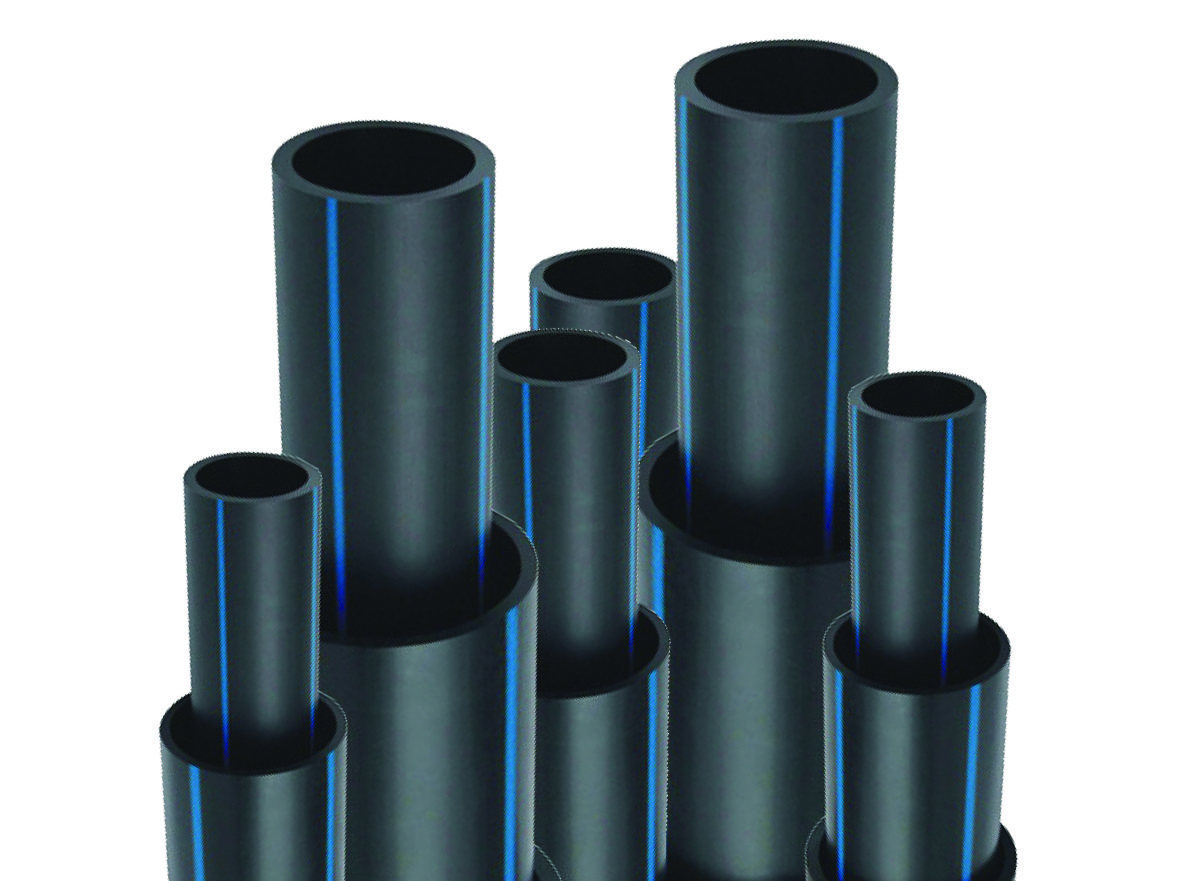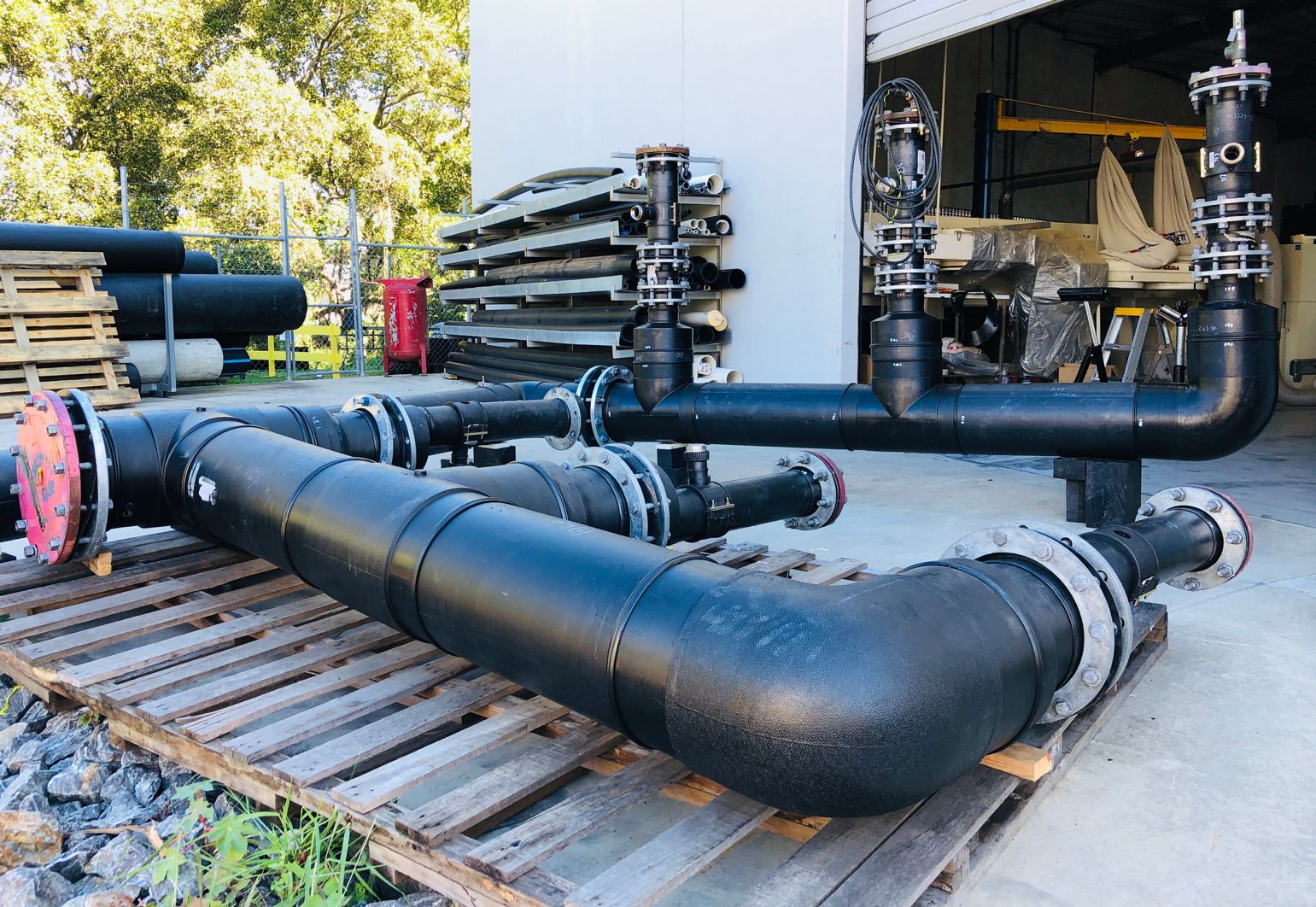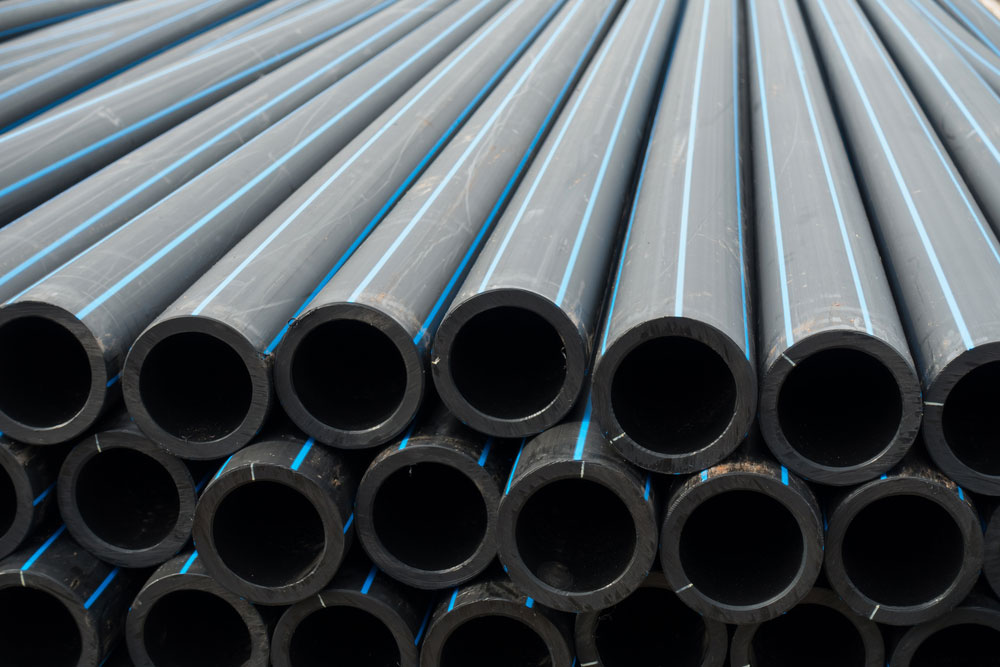Checking Out the Leading Pipeline Manufacturers: Top Quality, Dependability, and Innovation
The pipeline manufacturing market stands at the intersection of reliability, quality, and innovation, driven by leading companies such as Tenaris and Vallourec. These manufacturers are not just devoted to producing high-performance products yet are additionally introducing sustainable practices that attend to modern environmental concerns (HDPE Pipe Supplier). As we examine the requirements that specify excellence in pipeline remedies, it comes to be obvious that the landscape is swiftly developing. What details technologies are arising, and just how are these innovations shaping the future of pipeline facilities? The solutions may redefine market standards in means that are not yet totally comprehended
Leading Manufacturers Overview
In the domain name of pipeline manufacturing, a number of principals emerge as leaders, each adding substantially to the industry's landscape. Firms such as Tenaris, Vallourec, and JFE Steel have established themselves as frontrunners by consistently delivering top notch items that meet rigorous sector requirements. Tenaris, renowned for its innovative remedies, concentrates on smooth and welded pipelines, catering mostly to the oil and gas industry. Vallourec, a French international, concentrates on the manufacturing of premium tubular remedies, emphasizing sustainability and progressed innovation in its manufacturing processes.
Similarly, JFE Steel, a major Japanese manufacturer, is acknowledged for its comprehensive series of steel pipelines, particularly those made use of in power and infrastructure projects. Their commitment to research and advancement has enabled them to generate high-performance products that stand up to severe ecological conditions. Furthermore, firms like U.S. Steel and National Oilwell Varco have increased their market presence by expanding their product offerings and improving operational effectiveness.
These leading manufacturers not just control the marketplace but additionally drive advancement within the market, setting criteria for top quality and integrity that players desire attain. Their payments are crucial for meeting the increasing need for effective and long lasting pipeline options worldwide.
Criteria for High Quality Evaluation
Quality assessment in pipeline manufacturing depends upon 2 essential criteria: material durability standards and making process efficiency. Ensuring that products meet extensive sturdiness benchmarks is necessary for the long life and dependability of pipes. Additionally, maximizing the manufacturing process can improve performance while maintaining premium quality, ultimately influencing general performance and safety and security.
Material Longevity Specifications
Guaranteeing the durability and dependability of pipeline materials is essential for keeping framework stability and operational efficiency. Product toughness standards play a vital role in evaluating the high quality of pipelines, determining the efficiency and life expectancy of the materials made use of in construction. Manufacturers must abide by a series of rigorous criteria, consisting of those set by companies such as ASTM International and the American Oil Institute (API)
These requirements evaluate various elements, including rust resistance, tensile toughness, and exhaustion performance. As an example, pipelines made use of in corrosive settings call for materials that can hold up against chemical deterioration, while those based on high-pressure conditions should show outstanding tensile toughness.
In addition, variables such as temperature variations and ecological conditions have to be thought about, as these can greatly affect material behavior over time. Manufacturers commonly make use of innovative testing methods, consisting of sped up aging tests, to mimic lasting wear and assurance that products go beyond or meet industry standards.
Manufacturing Process Efficiency
Manufacturers' capability to enhance making procedure effectiveness is crucial for generating top quality pipelines that meet rigid sector standards. Efficiency in manufacturing straight influences cost administration, manufacturing timelines, and total product integrity. To attain this, leading pipeline suppliers implement innovative techniques such as lean manufacturing, automation, and real-time information analytics.
Lean producing principles are vital in minimizing waste and taking full advantage of resource utilization. By improving processes and getting rid of redundancies, producers can improve productivity while guaranteeing constant top quality. Automation innovations, consisting of robotics and computer system numerical control (CNC) devices, play a critical role in improving accuracy and decreasing human error, thus boosting the reliability of the last item.
Furthermore, using real-time data analytics permits suppliers to keep an eye on production procedures continually, enabling them to determine bottlenecks and make prompt adjustments. This proactive technique not just enhances performance however likewise supports quality control methods by making sure conformity with regulatory criteria.
Reliability in Pipeline Solutions
Dependability in pipeline services is vital, as it directly affects the safety and efficiency of fluid transport systems. Secret variables include the longevity of materials used, adherence to extensive testing and certification standards, and the unification of innovative material options that boost efficiency. Understanding these aspects is essential for manufacturers aiming to provide reliable pipeline framework.
Relevance of Durability
Achieving toughness in pipeline solutions is important, as it straight affects the long-term performance and security of infrastructure. Resilient pipes are important for reducing upkeep expenses and minimizing the likelihood of disastrous failures. This integrity is specifically essential in industries such as oil and gas, water, and wastewater management, where the consequences of pipeline failure can be severe, both economically and eco.
The materials and producing processes utilized by pipeline makers play a significant function in figuring out the longevity of the end product. Using premium resources, advanced innovations, and ingenious design principles ensures that pipelines can endure different stress factors, including stress variations, temperature level variants, and harsh atmospheres.
Furthermore, the durability of pipelines is closely linked to their capability to resist external variables such as soil motion, seismic task, and chemical direct exposures. Effective rust defense techniques, such as finishings and cathodic security, further improve the long life of pipelines, safeguarding them versus deterioration with time.
Spending in sturdy pipeline remedies eventually equates to increased operational efficiency, decreased downtime, and improved safety, affirming the critical importance of sturdiness in modern-day pipeline manufacturing.
Testing and Accreditation Specifications
In the domain name of pipeline remedies, rigorous testing and qualification criteria are crucial to ensure the integrity and safety and security of facilities. These criteria function as benchmarks for evaluating the performance and sturdiness of pipeline products and systems, verifying they fulfill specific regulative and industry needs.
Evaluating procedures commonly incorporate different techniques, including pressure screening, hydrostatic analyses, and non-destructive testing strategies. These analyses are important for identifying possible weaknesses or defects in the materials prior to they are released in real-world applications. Furthermore, qualification by recognized organizations assurances that makers abide by established standards, which cultivates count on amongst stakeholders, including designers, contractors, and end-users.
Many top pipeline makers participate in continuous tracking and improvement of their testing methods to adjust to advancing industry standards and technical innovations. Compliance with standards such as ASTM, ASME, and ISO not just enhances product integrity however likewise minimizes the risk of environmental cases connected with pipeline failures.
Ingenious Material Solutions
The growth of innovative material solutions has transformed the landscape of pipeline manufacturing, improving both efficiency and sturdiness. Advanced products such as high-density polyethylene (HDPE), cross-linked polyethylene (PEX), and composite products have become game-changers, offering remarkable resistance to deterioration, temperature changes, and stress variants. These materials not only prolong weblink the life expectancy of pipes but also lower maintenance expenses, making certain trustworthy long-term performance.
Manufacturers are increasingly embracing wise materials that incorporate sensors for real-time tracking. This technology enables positive upkeep, substantially enhancing integrity by spotting leaks or architectural weak points prior to they escalate right into vital failings. The assimilation of nanotechnology has actually additionally resulted in the development of coatings that boost the toughness of pipes versus abrasion and chemical exposure.
Sustainability is an additional essential emphasis, with suppliers exploring bio-based compounds and recyclable materials that reduce environmental influence. As regulatory criteria continue to progress, the emphasis on cutting-edge product services ends up being paramount in conference rigorous safety and security and environmental demands. Ultimately, these innovations not only boost the reliability of pipeline systems but also add to the total performance and sustainability of power transport infrastructures.
Technologies in Pipeline Innovation
Innovations in pipeline innovation are revolutionizing the sector by enhancing effectiveness, safety and security, and ecological sustainability. Current innovations concentrate on clever pipeline systems that utilize sensing units and IoT technology to keep track of problems in real time, enabling proactive upkeep and decreasing the risk of failings. These systems can spot leaks, pressure modifications, and other abnormalities, enabling quick action and reducing ecological influence.
Furthermore, the advancement of innovative materials, such as corrosion-resistant and composite alloys, substantially extends the life-span and dependability of pipes. HDPE Pipe Supplier (American Plastics LLC HDPE Pipeline Manufacturer). These materials reduce upkeep prices and improve efficiency in rough environments, making them ideal for gas, oil, and water transportation
Furthermore, automation and robotics are playing a vital role in pipeline building and evaluation. Drones and robotic gadgets assist in surveys and assessments of hard-to-reach locations, making certain detailed evaluations without compromising security.
Ingenious layouts, such as modular pipeline systems, allow for greater adaptability in setup and alteration, catering to the vibrant requirements of the power sector. With each other, these technological improvements not just boost operational efficiency however likewise add to a much more durable and lasting pipeline framework, leading the way for a greener future.
Situation Research Studies of Success
Across various markets, successful executions of sophisticated pipeline technologies show considerable enhancements in operational effectiveness and safety and security. One notable case is the implementation of clever pipeline monitoring systems in the oil and gas market, where real-time information analytics have actually lowered leak discovery times by over 50%. This not just decreases environmental threats yet likewise improves the overall stability of pipeline framework.

In addition, a major manufacturer applied robot examination innovations in its pipeline maintenance procedures, leading to a 40% renovation in examination efficiency. This strategy has structured maintenance routines and substantially decreased downtime.
These study highlight how top pipeline suppliers are leveraging cutting-edge technologies to foster dependability and operational excellence, ultimately setting new requirements for the industry. As these successes continue to unravel, they pave the means for additional innovations in pipeline manufacturing and monitoring.

Ecological Sustainability Practices
Frequently, pipeline makers are prioritizing ecological sustainability practices to reduce their ecological footprint and boost the longevity of their products. This dedication is mirrored in different campaigns targeted at reducing waste, saving power, and utilizing sustainable products throughout the manufacturing procedure.

Numerous makers are embracing sophisticated modern technologies that minimize discharges and energy consumption. For example, the combination of automated systems and energy-efficient equipment assists simplify production while decreasing reliance on nonrenewable fuel sources. In addition, companies are progressively turning to environment-friendly products, such as recycled steels and bioplastics, which not only decrease the environmental effect but likewise promote a circular economic climate.
Additionally, pipeline makers are executing strenuous lifecycle assessments to examine the environmental implications of their items from beginning to disposal. This approach allows them to determine opportunities for improvement and foster responsible sourcing and waste monitoring practices.
Cooperation with ecological organizations even more boosts these efforts, as manufacturers look for to align their operations with worldwide sustainability goals. Inevitably, these ecological sustainability practices not just add to a much healthier earth yet additionally position makers as accountable leaders in the industry, interesting ecologically conscious stakeholders and clients alike.
Future Fads in Pipeline Manufacturing
As the need for a lot more reliable and lasting facilities expands, pipeline manufacturing is poised for substantial advancements that will improve the sector. Key fads prepared for in the coming years consist of the assimilation of advanced products, such as corrosion-resistant and composite alloys, which boost sturdiness while minimizing environmental effect. Manufacturers are also anticipated to adopt innovative production methods, like additive manufacturing and automation, to improve procedures, minimize waste, and reduced expenses.
Moreover, the surge of clever pipeline innovations, including sensors and IoT tools, will certainly make it possible for real-time monitoring and anticipating upkeep, consequently improving safety and security and functional effectiveness. This electronic makeover will not only enhance resource management but also promote compliance with strict environmental guidelines.
Sustainability will certainly stay a main emphasis, driving manufacturers to invest in green methods, including energy-efficient manufacturing approaches and recycling campaigns. As the global emphasis on environment change magnifies, pipeline producers will certainly need to adapt by creating services that meet both ecological and financial needs.
Frequently Asked Inquiries

What Industries Largely Utilize Pipeline Products From These Manufacturers?
Pipeline items are largely used in sectors such as oil and gas, water and wastewater monitoring, chemical building and construction, mining, and handling. These markets depend on reliable, sturdy, and safe transport of fluids and products.
Just How Do Manufacturers Make Certain Compliance With International Pipeline Standards?
Manufacturers guarantee conformity with global pipeline standards by implementing strenuous quality assurance procedures, performing normal evaluations, sticking to well-known regulative frameworks, and purchasing employee training to advertise awareness and understanding of safety and quality demands.
What Is the Typical Life-span of Pipelines From Leading Manufacturers?
The typical life-span of pipes from leading manufacturers usually varies from 30 to 100 years, relying on material, ecological conditions, and maintenance methods. Texas Pipeline Manufacturer. Regular inspections and adherence to market standards substantially affect long life and efficiency
Are There Certifications Specific to Pipeline Manufacturing High Quality?
Yes, various certifications exist for pipeline producing quality, including ISO 9001 for top quality management systems and API standards particular to pipelines. These qualifications guarantee adherence to rigorous safety and security, performance, and ecological requirements within the sector.
How Do Manufacturers Take Care Of Pipeline Maintenance and Services?
Manufacturers normally execute a positive upkeep approach that includes normal examinations, keeping an eye on systems for very early discovery of concerns, and an organized repair work procedure. This approach guarantees pipeline stability, decreases downtime, and boosts general functional effectiveness.
Quality assessment in pipeline manufacturing pivots on 2 vital standards: material toughness standards and making process performance - Pipeline Manufacturer. Product resilience standards play an essential function in reviewing the top quality of pipes, determining the performance and life expectancy of the products used in building and construction. The materials and making procedures used by pipeline manufacturers play a considerable role in establishing the longevity of the last item. The ordinary life-span of pipes from leading makers typically varies from 30 to 100 years, depending on material, ecological conditions, and maintenance techniques. Yes, various accreditations exist for pipeline producing high quality, consisting of ISO 9001 for high quality administration systems and API requirements certain to pipelines